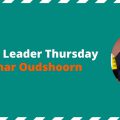
There is an image that is often used: “When you look in your rear-view mirror, you see how much has changed.” A nice metaphor, but outdated by now. Nowadays, we no longer need a rear-view mirror to recognize changes – we see them coming (not always) or are in the middle of them. Everything is moving, simultaneously. Technology, society, expectations of citizens and customers, the way organizations function: it is not only changing faster, it is also changing more deeply.
In such an environment, it is not enough to interpret changes after the fact. Organizations must be able to sense what is coming their way, pick up signals early, and respond flexibly. And that is precisely where a key role lies for communication professionals. At least: that is where it should lie.
From executor to strategic partner
It is a familiar sound in the profession: communication employees who complain that they are “connected too late”. That they are mainly seen as creators of resources – a press release, an article on the intranet, a flyer for the new strategy. Only when the decision has been made does the question arise: “Can you communicate this?” For a long time, communication in many organizations has mainly been seen as executive. And to be honest: many communication professionals themselves have also accepted that image. The role of advisor, of strategic thinker, was indeed aspired to, but not always claimed.
Yet it is shifting. In recent years, the profession has been developing rapidly. More and more communication professionals are showing that they are more than a conduit. They understand the dynamics between inside and outside, sense where there is friction, see where opportunities lie, and dare to ask critical questions before something becomes policy. They are no longer the voice after the decision, but the feelers before the course.
Not yet self-evident
Education, professional associations and social developments have all contributed to this growth. Strategic self-awareness has increased. In many organisations you see communication teams that not only think along, but also help determine. Who position themselves as experts in the field of reputation, participation, internal dialogue and social impact. Who help their organisation navigate in a complex world.
But let's also be realistic: this is far from the case everywhere. In many organizations, communication still remains primarily supportive. And some professionals still have the old reflex: "won't they find me annoying if I interfere with this?", "am I allowed to have an opinion about this?" That is no longer tenable.
Steering instrument
In these times when trust is important, social sensitivities are high and changes follow each other in rapid succession, communication should not be the final element. Communication is a management tool: a way to interpret, connect, organize support, and learn. Communication is not a side issue, it is policy – or at least it should be. That requires something from the communication professional himself. Not waiting to be invited, but inviting yourself. Not only reacting when the strategy is in place, but taking your role in shaping it. Not just creating resources, but stimulating conversations. Not being a messenger, but a thinker and course guardian. Much has already been achieved. The profession has grown, become stronger, more visible. But the potential has not yet been fully utilized.
Communication professionals have unique insights into how internal and external parties interact. They have a sense of timing, language and tone. They recognise early on where social and organisational movements meet. This makes them ideally suited to not only express changes, but also to help shape them. So: dare to take that step. Communication professionals: don't be too modest on the sidelines, but step confidently into the middle. And managers, directors: you cannot afford to only involve communication last. The future demands sharp observation, clear language and the ability to connect. And that is exactly what this wonderful profession has to offer.
Written by Sybrig van Keep.





